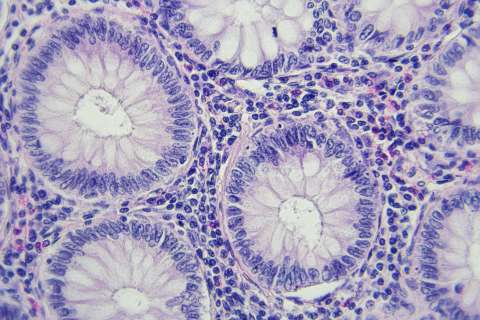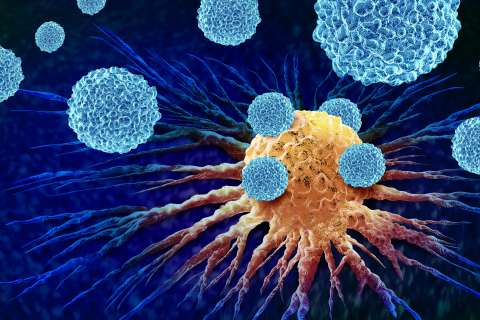Robert Miller had no idea his life was about to be turned upside down by cancer. He expected some routine blood tests in preparation for back surgery. But his doctor found that his platelet levels (which should have been around 140,000) were at 40,000.
“By the time I repeated the test a few days later, they were down to 18,000,” Miller recalls. His doctor referred him to a hematologist (doctor specializing in blood conditions). In the meantime, Miller began feeling extremely weak and exhausted.
The day of his hematologist appointment, Miller was so tired he could hardly walk across the parking lot. When he finally got to the doctor’s office, he had to lie down because he was too weak to stand.
What the tests revealed
That day, Miller’s doctor took one look at his still-dropping platelet levels and sent him directly to the hospital. A bone marrow test showed he was positive for acute lymphoblastic leukemia (ALL), also called acute lymphocytic leukemia.
At Ronald Reagan UCLA Medical Center, Miller met Dr. Susan Larson. “Once you start with a doctor, UCLA doesn’t transfer you around to other people,” says Miller. “That person takes ownership of your case from start to finish. She was with me every step of the way.”
Miller didn’t let his less-than-positive prognosis get him down. When Dr. Larson told him he had a 50/50 shot at survival, his response was, “That’s better than 40/60, so let’s get going!”
Strong mind, strong body
Throughout his conditioning regimen of chemotherapy in preparation for a bone marrow transplant, Miller kept that optimistic attitude. “Positive thinking creates positive results,” was his motto.
Keeping his body fit was just as important as keeping his attitude positive. “They told me exercise would help me stay strong, so I walked about 38 miles around those halls during my month of chemotherapy,” says Miller. “I knew that if I went in strong, there’d be a better chance I’d come out strong.” He made friends with everyone he encountered in the hospital as he made his daily rounds.
The gift of life
As for many people with leukemia, bone marrow transplant was literally lifesaving for Miller. He appreciates how far the technology has come in the past several years.
“If I’d gotten this diagnosis 20 years ago, I would have been dead within a few months.” Instead, he’s been cancer-free for nearly two years.
“Going through this process is intense and difficult, and you have to be determined to win,” says Miller. “That’s the approach I took to cancer.”



